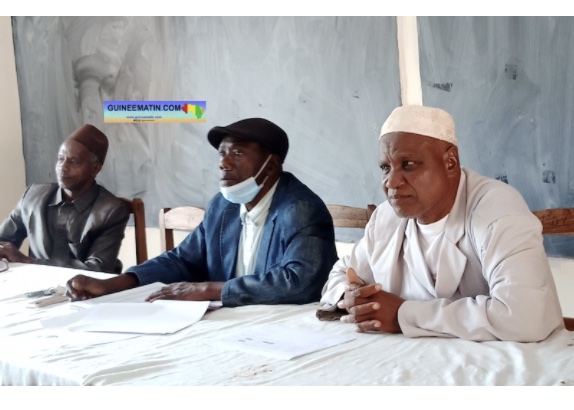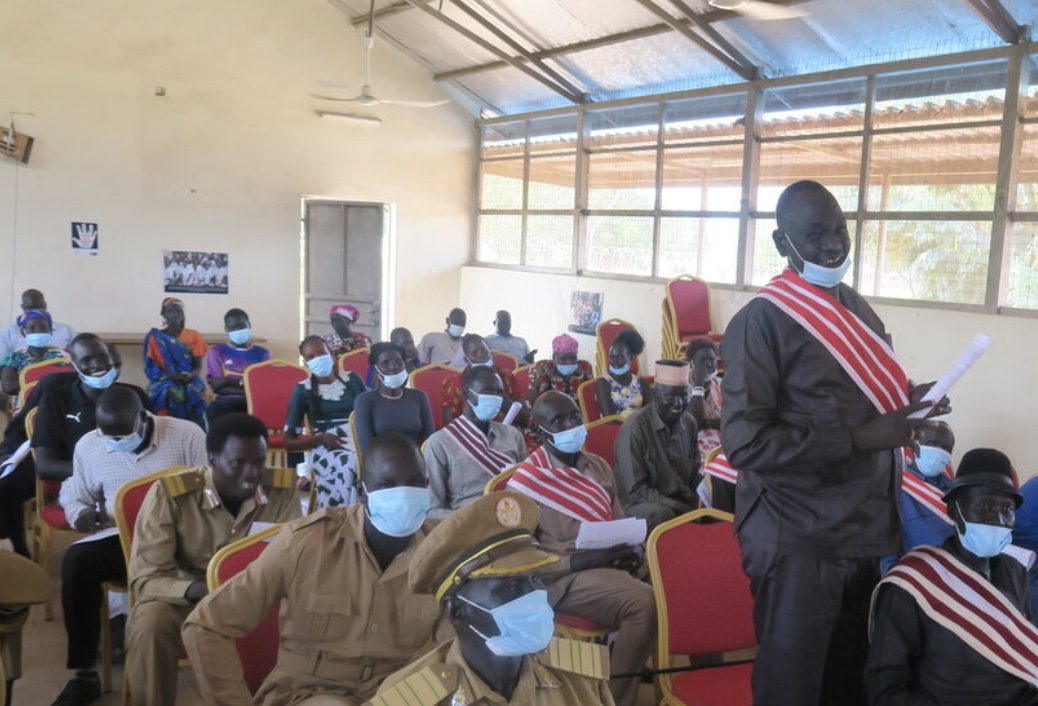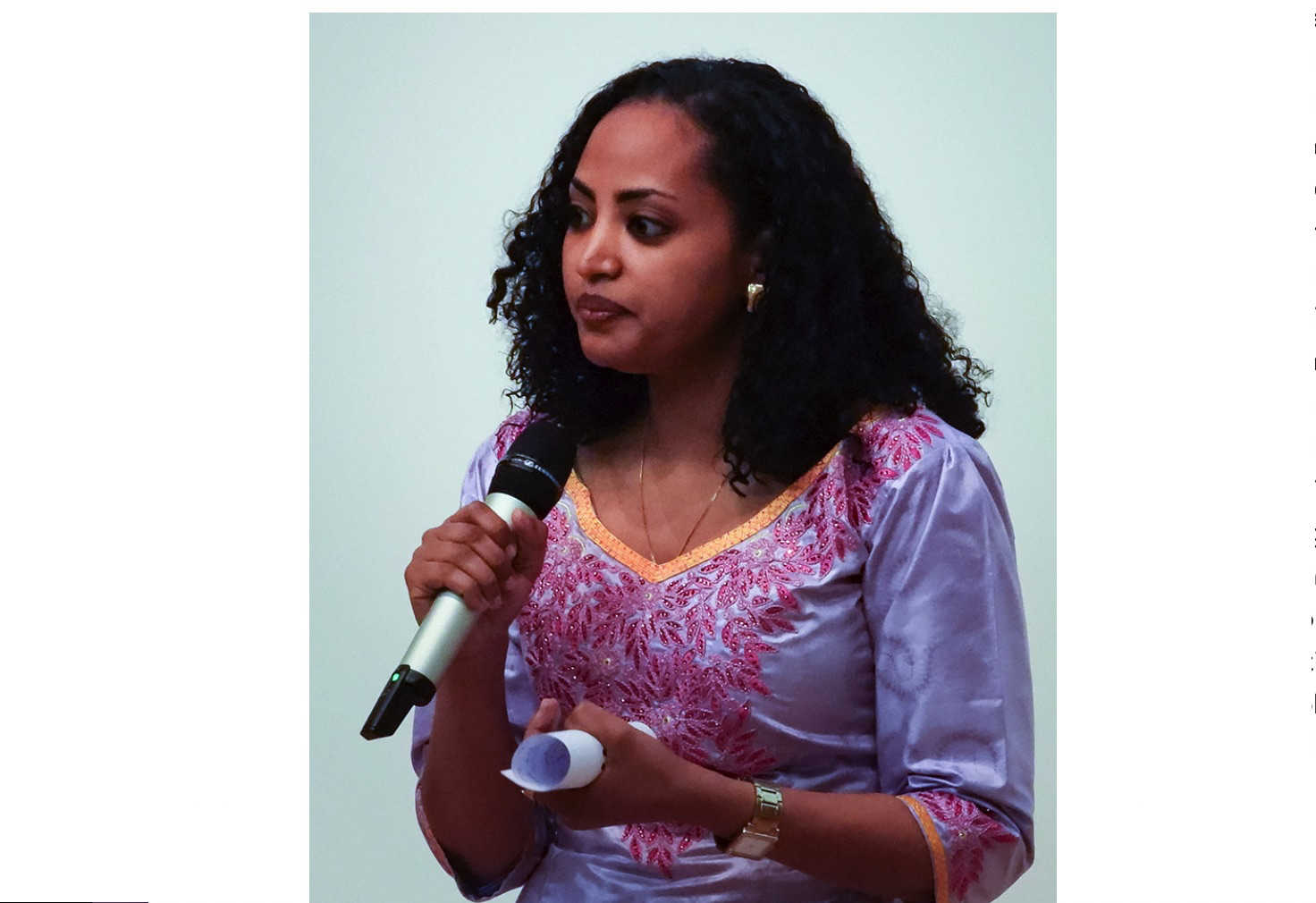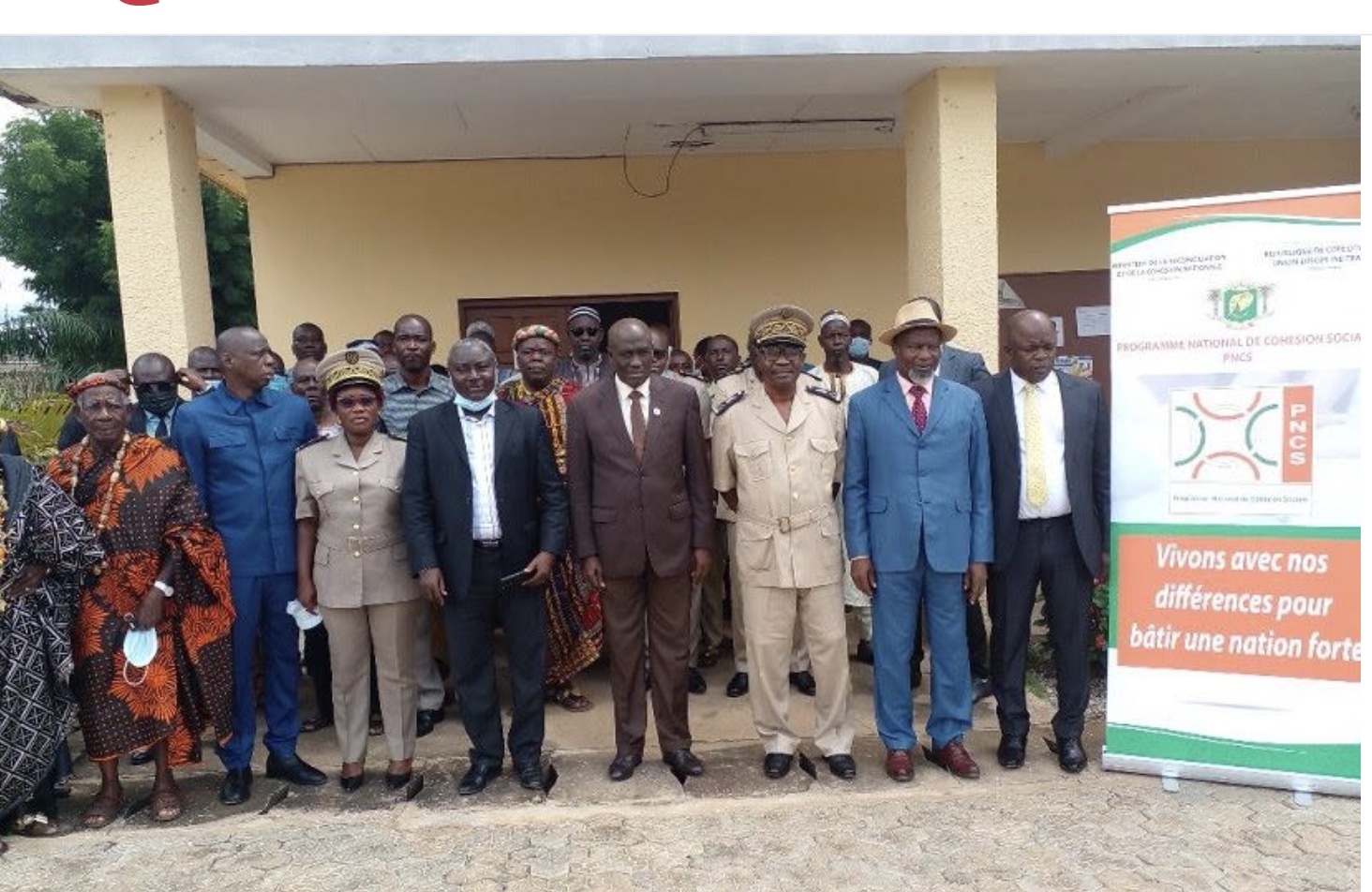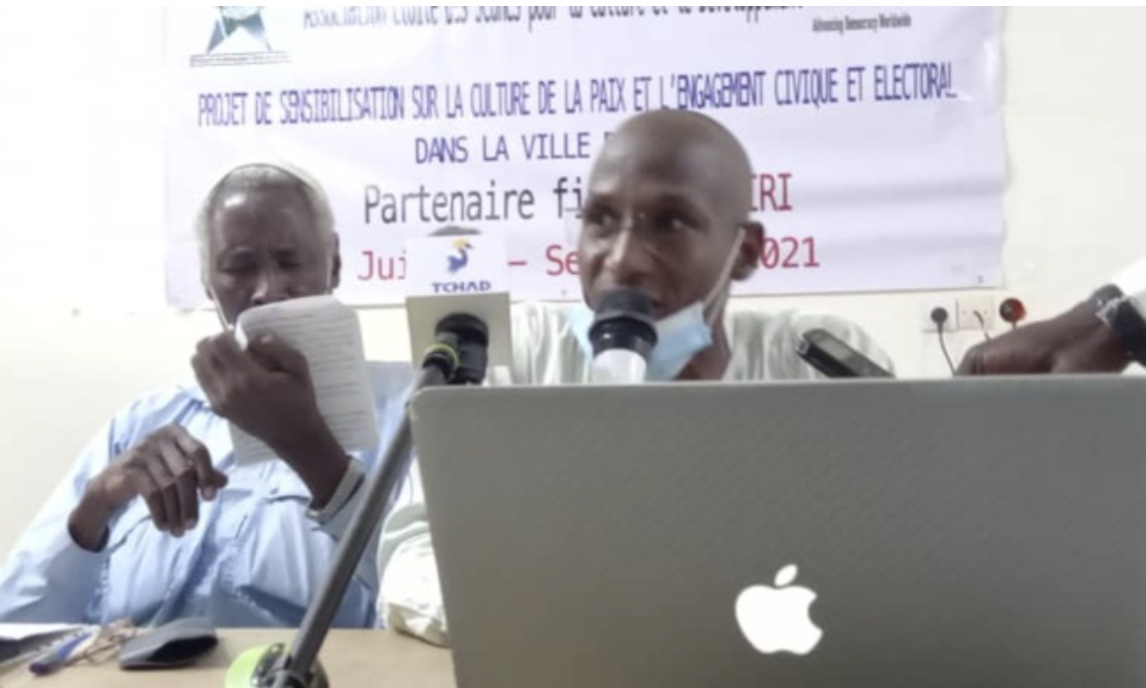. TOLERANCE & SOLIDARITY .
An article by Lawali Dembele in Le Faso (translation by CPNN)
A reflection, communication and experience-sharing activity, the national community forum was held this Saturday, September 26, 2021 on the second day of the Great Nights of the Dédougou communities, initiated by the association ImpactAdo. The theme of the GNC, “Promotion of peace and social cohesion, what contributions of youth”, was dissected and debated by the facilitators for an afternoon.
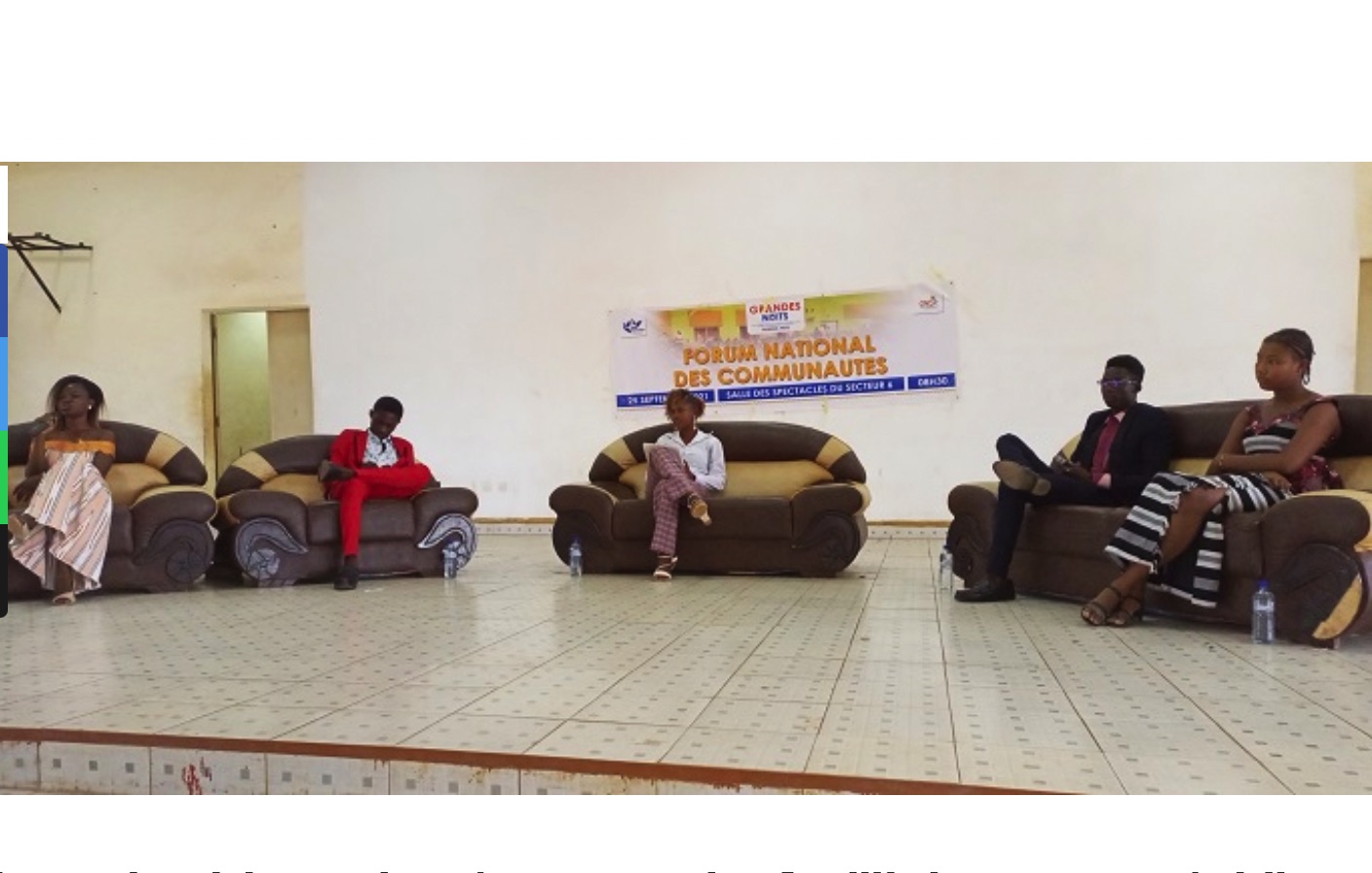
Séverine Sawadogo, Adama Démé, two students and Dieudonné Zagré and Aminata Boly, two other students each talked about living together and social cohesion. Very applied and without complexes, the young speakers presented their communication to the ovations of the participants.
Introduing the speeches, the promoter of the Great nights of communities, Ibrahim Donyéré, set the scene by explaining the strategy adopted by the association Impact Ado with the involvement of young people/ “These young people will share their experiences. Through this choice, we want the message of the search for peace, social cohesion and living together to be carried by young people and adolescents themselves.”
Two young boys and two young girls, it is the young team which, during two hours, took stock of the situation of the lack of peace and social cohesion in Burkina Faso, while proposing solutions and behaviors for young people for the consolidation of a peaceful climate in Burkina Faso and particularly in the Boucle du Mouhoun region.
For Séverine Sawadogo, an economics student at Norbert Zongo University and first facilitator, several actions should be taken in the search for peace. Addressing the central theme of the Great nights of communities, she insisted: “To ensure the well-being of the community, we must demonstrate patriotism and civility by organizing forums for meeting and sharing of experiences like the GNC. ”
To better understand the difficulties experienced by young people and especially how to resolve them, she quoted the emblematic figure of the Burkinabé revolution, Thomas Sankara: “We must not leave a monopoly of thought, imagination and creativity to our enemies yesterday and today.”
(continued in right column)
(Click here for the original French version of this article)
Question related to this article:
Youth initiatives for a culture of peace, How can we ensure they get the attention and funding they deserve?
Can a culture of peace be achieved in Africa through local indigenous training and participation?
(continued from left column)
A student in the first D class, Dieudonné Zagré, in turn, gave a presentation on the benefits of personal development in a context where the search for peace remains an equation to be solved.
According to the student Zagré, the term “personal development” is self-improvement, personal work that consists of surpassing oneself. “I would like to see a renewed youth of Burkina Faso. Let’s ignore our differences, let’s accept each other, let’s come together for the development of our homeland, Burkina Faso, ”said Dieudonné Zagré.
The use of social networks at the heart of discussions
A Sstudent in the Faculty of Life and Earth Sciences, Adama Démé from Norbert Zongo University in Koudougou shared the experience of young people on the use of social networks.
“The misuse of social networks by young people is a real problem. We see cases of recurring disinformation on social networks, the sharing of fake news with consequences including cybercrime. ”
These facts constitute evils according to the student. He then called for awareness among young people so that the fight against the trans-generational transmission of this misuse of social networks can be stopped. Otherwise, the culture of peace and social cohesion will be undermined.
For the last facilitator, Aminata Boly, a final year D student at the Saint Gabriel private college in Dédougou, the promotion of culture, customs and traditions is an explorable solution to safeguard peace in Burkina Faso: “I think that knowledge of customary and traditional values is important for the culture of peace and social cohesion. ”
Starting from the African proverb which affirms that “a country without culture is like a tree without fruit”, the student called on the Burkinabè youth and especially that of Dédougou to promote cultural and traditional values for a better Burkina.
Present as guest of honor, the mayor of Barani, Hamidou Sidibé welcomed the holding of the national community forum.
“We are very happy with what we have seen. This youth is conscious and engaged. Conscious of his society and committed to the positive transformation of society. We are reassured that the next generation is assured, ”said Mr. Sidibé.
Before concluding, he did not fail to quote Professor Joseph Ki-Zerbo: “We do not just develop, we develop ourselves. ”
For Aminata Diallo, secretary general of the Impact Ado association and moderator of the forum, this activity aims to bring about change so that young people are more engaged, more united. “We hold that the education is the foundation for lasting peace. Also, it was recommended more equity, equality and justice in society in order to cultivate a peace and social cohesion that is sustainable.
The forum concluded with a guided visit to the village and communities.



